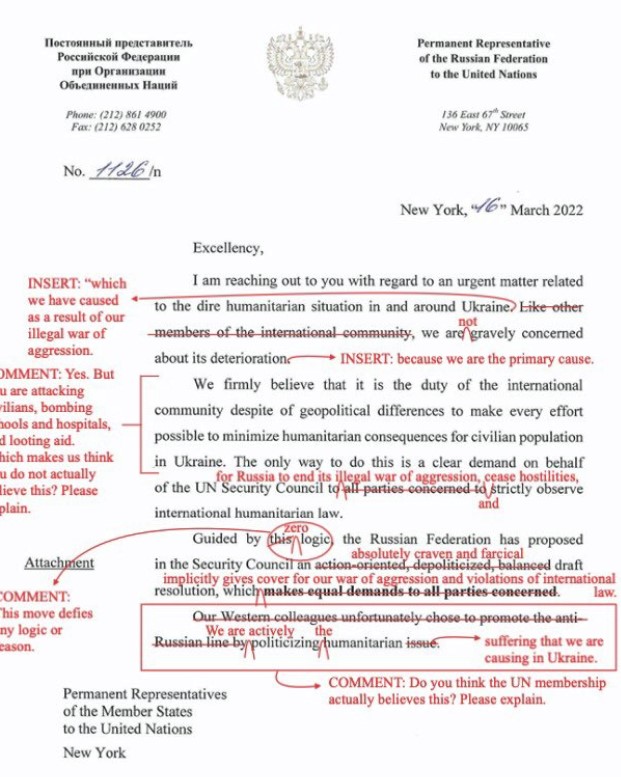In the News March 28
NATO Extraordinary Summit of Heads of State
Hooliganism and Military Escalation Displace Diplomacy and Seeking a Peaceful Resolution to Ukraine Conflict
During a March 20 interview on CNN, Ukrainian President Zelensky said, “I’m ready for negotiations with him [Putin]. I was ready for the last two years. And I think that without negotiations we cannot end this war.” He added, “I think we have to use any format, any chance in order to have a possibility of negotiating, possibility of talking to Putin. But if these attempts fail, that would mean that this is a third world war.” Similar promotion of “a third world war” was also widely spread in the U.S. by Biden and Congresspeople in relation to calls for a “no-fly” zone. A main purpose is to promote fear and generate further support for more arms and weaponry to Ukraine, and more NATO planes and ships, all as necessary without the no-fly zone.
Zelensky was responding to CNN’s Fareed Zakaria asking if it would be difficult to negotiate with Putin, given that President Biden has called him a “war criminal.”
Zelensky said that if there is even just a “one per cent chance” to resolve the situation to avert a world war, it must be tried. Meanwhile, he persisted saying that the aim of the Russians is to “exterminate us, kill us.”
The continuing military conflict in Ukraine cannot be brought to a resolution without recognizing and addressing the reality of the U.S. insistence that NATO increase its militarization and expand to encircle and “crush” Russia. The persistence of the U.S.-led alliance to ignore Russia’s security concerns shows that the aim is to destroy Russia, not reach a political settlement. Such an aim leads to endlessly perpetuating the conflict, as was done in Iraq and Afghanistan and continues in Palestine and Yemen. It also justifies escalating the conflict, such as with claims concerning use of biological weapons by Russia. All of it goes against the desire of the peoples of the world for a speedy peaceful resolution.
“Diplomacy” refers to “the established method of influencing the decisions and behaviour of foreign governments and peoples through dialogue, negotiation, and other measures short of war or violence.” Russia repeatedly attempted to use diplomatic measures to obtain an agreement amongst the parties involved for its security concerns. Many major speeches and interventions testify to this; the U.S. demanded military encirclement of Russia by U.S. troops and NATO forces is testimony to the provocative response to diplomatic pleas.
At this time, we see refusal on the part of the U.S./NATO forces to find a way out of the military conflict. Russia is clearly not backing down, while the U.S. and its NATO allies continue to pour military equipment into the region and Ukrainian President Zelensky, echoing Biden, is their cat’s paw, irresponsibly threatening a third world war.
As for other parties involved in the equation, anything even remotely resembling “diplomacy” has been derisively replaced with outright defamation, childishness and hooliganism. This was on display at the UN Security Council’s meeting of March 17 on the humanitarian situation in Ukraine. Russia had submitted a draft resolution on aid access and civilian protection to the Council. The motion was withdrawn by Russia shortly before the meeting, with its Ambassador to the UN, Vassily Nebenzia, stating that it had been informed of “unprecedented pressure” being exercised against Security Council members. Reuters News Service quotes Nebenzia as saying, “Many colleagues from many delegations tell us about unprecedented pressure by Western partners, that their arms are being twisted, including blackmail and threats.”
Speaking at the Security Council meeting, Nebenzia said, “We do understand how difficult it is for those countries to withstand this kind of onslaught.” The childish answer proffered by U.S. Ambassador to the UN Linda Thomas-Greenfield after the meeting when she spoke to Reuters was: “The only people who do arm-twisting around here are the Russians and they have to if they want to get anybody to support them.”
The response of Canada’s Mission to Russia’s draft resolution was to post a mocking “annotated” version of it to its Twitter account (see below). As an example, a sentence in the original that read: “Like other members of the international community, we are gravely concerned about its deterioration” was crossed out and replaced with the words: “We are not gravely concerned about its deterioration because we are the primary cause.” It was said to have been received with much hilarity by like-minded “allies” who are not worthy of being entrusted with diplomatic missions.
Shame on them for dismissing opportunities to provide serious problems with solutions and double shame for thinking they will get away with it.

TML Daily, posted March 28, 2022.

|

|

